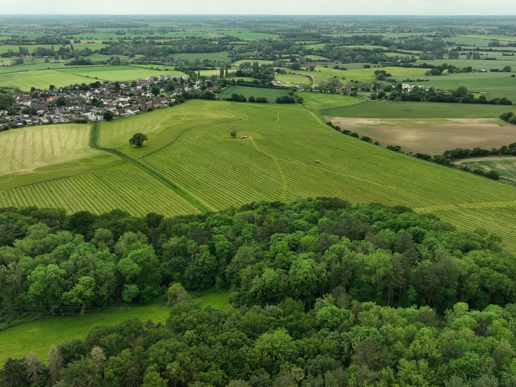Decide how you want to make an impact - and then do it

In the latest in our series from the fast-growing horticultural services company Ground Control, Kim Morrish explores how businesses can maximise their positive social and environmental impact
Businesses understand the idea of a unique selling proposition: the one thing that makes your business better than the competition. The efforts of whole marketing and sales teams are built around this knowledge and companies struggle if they don’t have one.
USPs change over time as rivals adapt and customer needs evolve. They can also be challenged by external forces. The drive to net-zero as part of our attempts to ameliorate the climate crisis is one; the impact of the pandemic another.
In response we have built on our USP. We want to deliver something beyond profitable horticultural services and products and think that by doing so we will ensure that our company prospers in the long term. We call it our unique impact proposition, or UIP.
It is a work in progress. We have started from the position of recognising that business has a role and responsibility to act on the problems faced by society. Government cannot solve them without our help but alone, neither can we. So we are looking for like-minded businesses with which to collaborate and make a difference.
Our UIP is very much centred on nature and the environment. We join the 105 big companies, such as E.on, Ikea and Anglian Water, that wrote an open letter to Liz Truss last week urging her to show how she will meet Britain’s net-zero goal, after she commissioned a review of whether pursuit of the target was “pro-business”.
We do not need a review — the goal is pro-business as business cannot exist in a vacuum — and we do not need political will for climate action to falter in the face of the cost of living crisis. Abandoning the target will place even more burdens on business and consumers. For now I am taking the prime minister at her word as she promised to “double down” on meeting the 2050 net-zero target during her leadership campaign.
One practical step we have made is to host (virtually and in-person) more than a thousand people at our biodiversity event Green Gains Live. For the past two years we have gathered landowners, corporate leaders, biodiversity experts and public bodies with the aim of working towards one common goal: to reverse the decline in the UK’s natural environment and aid nature recovery.
The discussions covered everything from interventions using nature to heal itself to the commercial impact of protecting biodiversity through land management. Together, we brainstormed, shared, debated and planned ways of linking up more effectively across industry sectors and regions to build networks of nature conservation that strengthen rather than diminish the natural world.
As a commercial entity, we see the financial and ethical reasons for doing all this. The event itself was not conceived as a business development exercise but we did pick up 15 new contracts as a result. It also provided evidence of our commitment to nature recovery, and our credibility, which has led to invitations to join further discussions and is helping us to develop partnerships in preparation for the creation of government-mandated local nature recovery strategies in England next year.
To be authentic any company developing its UIP needs to be mindful of what others are trying to achieve. Ours takes into account the government’s 25-year environment plan, Natural England’s nature recovery network, the Wildlife Trusts’ 30 by 30 project, along with many other initiatives. As the people who deliver services on 55,000 sites, we can take their goals and help to make them happen.
Tony Juniper, chairman of Natural England, issued a rallying cry at our event. “Now is the time for everyone to play their part in contributing to positive environmental change, protecting the natural environment and promoting biodiversity,” he said. “We all have a valuable contribution to make and no landowner is too small to make a difference.”
In short, we acted as a catalyst and an amplifier, providing the forum to cross-pollinate ideas and practices across a wide range of organisations and get the conversation going around something we care passionately about.
It strengthened our relationship with customers, expanded commercial opportunities, engaged our own employees and will hopefully help to advance the government’s vision for creating vast networks for nature conservation.
If this sounds appealing, perhaps ask the same questions that we did. What do you care about? What unique opportunity do you have to use your business as a platform to catalyse and build impact? What is your UIP going to be? And who do you need to collaborate and connect with to make it happen?
Entrepreneurs are good at this stuff. They have ideas, take risks, have drive and determination. It is those same skills that can be harnessed to make an impact.
Yvon Chouinard, the founder of Patagonia, built his outdoor clothing company to help climbers, offer enjoyable working conditions, ensure minimum water use and carbon production and avoid dangerous chemistries and dyes.
He is now giving away all his shares in Patagonia to a trust that will use future profits to help to fight the climate crisis. “Earth is now our only shareholder,” Chouinard said in a message to staff and customers. “Instead of ‘going public’, you could say we’re ‘going purpose’. Instead of extracting value from nature and transforming it into wealth for investors, we’ll use the wealth Patagonia creates to protect the source of all wealth.”
As business leaders we can reimagine our USPs for the benefit of the planet as well as our profits. It just helps if you know what impact you want to have and then own it.

Why the landscape industry must lead the ESG charge

Beat the budget blues by becoming your own disruptor




